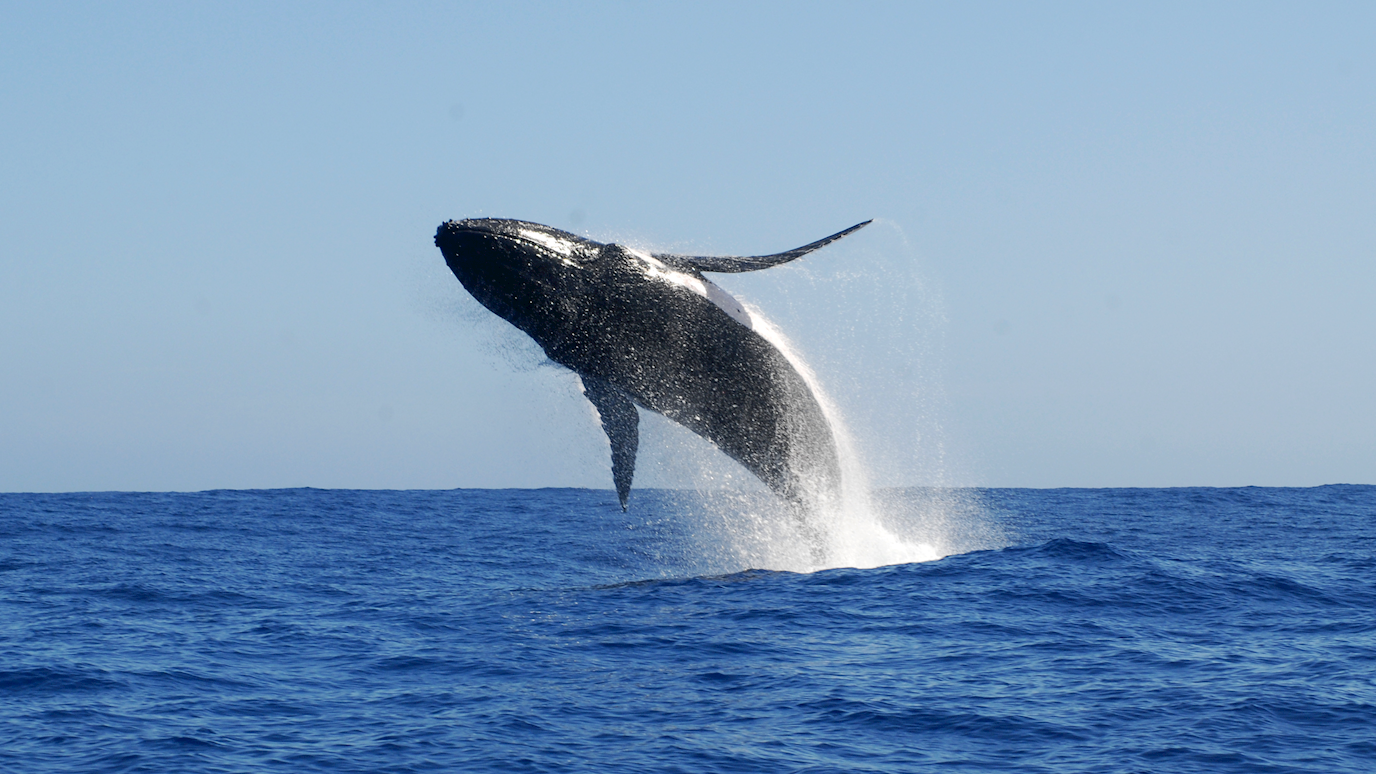A new study of humpback whale song by Royal Holloway, University of London and University of St. Andrews has revealed that, while all humpback whales share a love for learning new songs, those songs change and spread through whale populations in different ways based on their geographical environment.

Whale song culture differs between northern and southern hemispheres. Photo by Ellen C. Garland
While humpbacks in northern hemisphere populations have long been known to sing songs that slowly evolve over decades, previous studies of whales in the Southern Pacific revealed songs undergoing dramatic cultural changes, with males rapidly replacing the song of the previous year with an entirely new song adopted from a neighbouring population. It has never been known, however, whether this cultural contrast between musical evolution in the north, and rapid revolution in the south, might be due to differences in how individual whales learn, or in how their cultures develop.
The new research Global Cultural Evolutionary Model of Humpback Whale Song revealed that, while all whale populations share the same preference for new and unfamiliar songs, their local geography determines whether this leads to revolutionary or evolutionary cultural patterns. Humpback whale song, having existed for millions of years, is an extraordinary example of vocal cultural behaviour in the natural world. Whale song is a famous example of animal “culture”, that is behaviour that is widely shared within a community, and transmitted by individuals learning from one another.
Ocean geography can impact how humpback whale populations interact. Southern hemisphere humpbacks convene around extensive feeding territories around Antarctica. This means that interactions between populations are very rare but, in these rare encounters, exciting new songs heard from a neighbouring population can be learned, then rapidly spread within that population.
In contrast, both oceans in the northern hemisphere are constrained by continents on east and west sides, funnelling whales of several populations into comparatively small areas. This means that the more frequent interactions in the north create slower, iterative changes to a communal song in that ocean basin. With these high rates of interactions, new variants and modifications of songs in the Northern Pacific – as opposed to wholly new songs in the south – are rapidly shared between all populations, leading to one slowly evolving song type dominating the entire ocean basin.
Lies Zandberg, of Royal Holloway’s Department of Psychology, said: “Humpback whale songs are one of the most fascinating examples of transmission of a cultural trait in any non-human animal, but their sheer size, distribution and enormous migrations make it almost impossible to study this process of song learning experimentally.
“Taking a cultural evolutionary perspective on whale song has allowed us to understand on the scale of ocean basins how these two completely different patterns of cultural change can arise, giving us a better understanding of the complexity and depth of culture in the animal kingdom.”
























